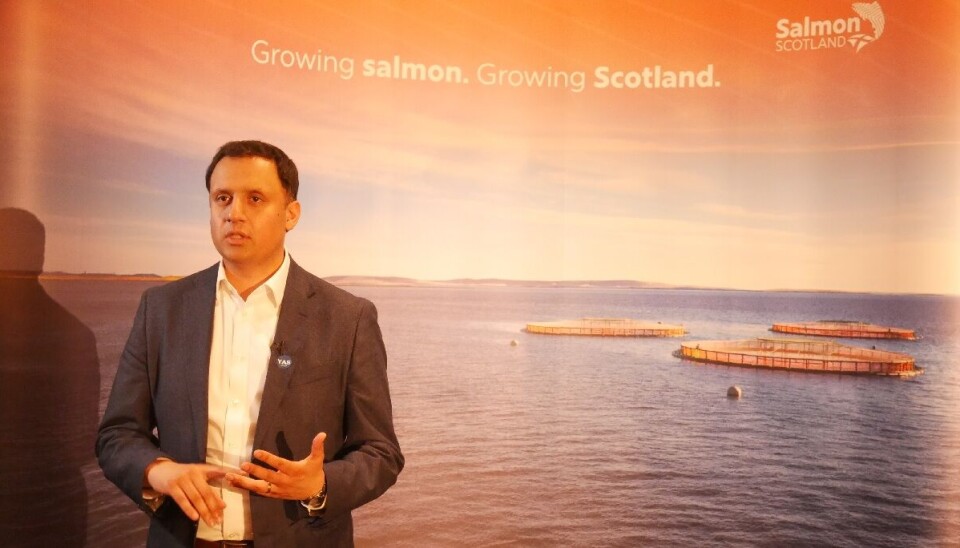
Salmon sector is key for economic growth, says Scottish Labour leader
Scottish Labour leader Anas Sarwar has highlighted the importance of salmon farming to the country’s economy and the role it will play in the party’s plans if Labour gains power at Holyrood in 2026.
Sarwar, whose party has edged ahead of the governing SNP in recent opinion polls for the UK general election later this year, was speaking on a visit to Aquaculture UK, a trade show and conference taking place in Aviemore this week.
Labour members in the Scottish Parliament include Monica Lennon, who has previously proposed introducing a crime of ecocide for what she perceives as environmental damage, and who has questioned the “long-term sustainability” of the salmon industry.
Key part of the plan
But when asked if salmon would be safe in Labour’s hands, Sarwar told Fish Farming Expert: “Absolutely, it is a key part of our growth plan for Scotland.
“We have already said that growth will be our number one priority. The salmon industry is key to that.”
Referring to problems the sector has suffered with high mortality levels, he added: “We want to drive up standards, of course, but it has to be done as a partnership.”
Green pact unlikely
When asked if he might do a deal with the Scottish Greens, similar to the Bute House Agreement recently scrapped by the SNP, Sarwar didn’t directly rule it out.
But he said: “It is pretty safe to say that we want sensible policies that make a difference.
“Economic growth is not negotiable. If you don’t drive that, you don’t get to do all of the things we want to do with social policies.”
HPMAs
The Scottish Labour leader was also asked if he could confirm that he wouldn’t seek to introduce Highly Protected Marine Areas, a move abandoned by the SNP after it caused uproar in coastal communities.
Again, without ruling it out, Sawar said there was a disconnect between some politicians in Holyrood and people living in coastal communities, which Labour would avoid.
“So often policies are done to those communities instead of with them,” he said.























































